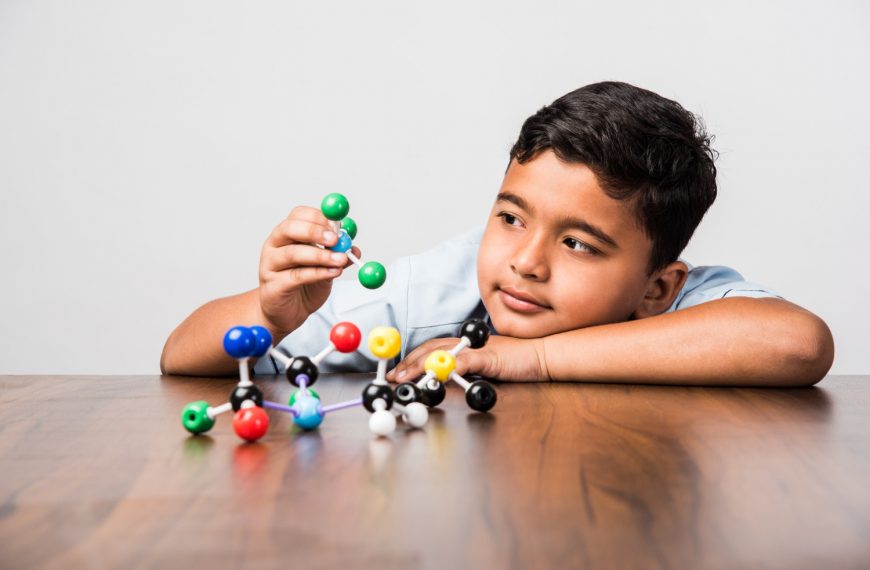In today’s world, children are bombarded with way more information than their parents were, during the crucial early years of their childhood. That makes it all the more imperative, for them to be able to sift through all that information and further, evaluate what they are hearing with a view to formulating their own opinions.
As a parent, one of the most important things you can do for your child is foster an environment for them that will be conducive to harnessing their critical thinking skills. Learning to think critically, your children will be able to progress academically and professionally, and develop long-term, sustainable relationships.
Before getting into what those critical thinking activities for kids might be, let’s take a look at what ‘critical thinking’ actually means.
In a nutshell, critical thinking for kids refers to their ability to imagine, analyze and evaluate information with a view to determining what is factual and what is not. Furthermore, critical thinking is an essential part of problem-solving, decision-making and goal-setting.
Why Critical Thinking for Kids is Important
What’s the big deal about critical thinking for kids, anyways?
- It encourages a sense of curiosity. This sense of curiosity is vital in helping them learn more about the world around them and things in general.
- They learn from others. Learning that the world doesn’t revolve around them, kids gain a keen appreciation of imbibing information from others.
- It helps promote their interests. Children who think critically get deeply vested and engaged in topics that interest them.
- It teaches them problem-solving skills. By learning to think critically over time, children harness vital problem-solving skills that help them solve problems over the time to come.
Skills to Develop Critical Thinking in Kids
So, how does one go about the process of honing critical thinking in kids? Here’s a look at the same.
Give it a pause
You need to afford your child some precious time to think and come up with a solution for themselves, whenever they are faced with a particular problem. You will see that this gives them that much-needed time to refine their solution, rather than respond with their gut reaction.
Be a role model
Critical thinking for kids is a lesson best imparted to them by your being an effective role model. You will see that through the process of modelling critical thinking in your own life, you might be able to forge a great impression on your kids, who look up to you and strive to emulate you in every which way. To this effect, you can research things that might sound untrue, or perhaps even challenge statements that seem unethical.
Ask them open-ended questions
Surely one of the best ways to develop critical thinking in kids, this one helps children think for themselves. When they are faced with a problem, you might not wish to present them with a tangible solution, but rather, ask them a question like ‘What do you think the approach to this should be?’ Ensure that you don’t merely dismiss the ideas they put forth; respect them, and instead ask your children why they feel that way.
Encourage in them a sense of questioning
Critical thinking activities for kids involve those they practice on their own. You might set them thinking with questions you pose them, but why not let them question things themselves? This innate sense of questioning might bring forth a barrage of questions that you might find exhausting to answer, but it’s clearly worth it for your child, who will get increasingly better at identifying misleading information, as well as being able to articulate themselves.
Help them develop hypotheses
Critical thinking for kids is taken to the next level when they learn to form hypotheses in response to situations. For instance, when some event takes place that might have some repercussions on future events, you might want to ask your child what they think will happen next. This will go a long way in helping them sharpen those critical thinking skills.
Making Choices
One of the most important skills to develop critical thinking for kids, is the power to make their own choices. Tell your children that they will forever be faced with decisions they will have to make; sometimes, even at the drop of a hat. Tell them that it is perfectly all right to say no to playdates and even birthday party invites, if they are thus inclined. Further, encourage them to make their own choices as to what they want to do with the money you give them to spend, and even social media use. Empowered with the ability to decide for themselves, they will, more often than not, make ‘healthy choices’.
Promote thinking in new ways
Critical thinking for kids is greatly sharpened through the process of ‘even more thinking’. Even if your children come up with great options to particular situations, you might want to encourage them to think of all the best possible options there might be, including the one they have chosen. This helps them form new perspectives and might even get them to come up with a solution that is better than the one they originally presented.
Encourage Open-Mindedness
You cannot miss this one, when looking for the best ways to develop critical thinking for kids. Although they might be pretty great at forming opinions on their own, it’s really important that your children learn to be objective and evaluate ideas without any sense of bias. Through the process of leaving their judgments and assumptions aside, they might even discover that they were wrong in their opinions. The best way to foster that sense of open-mindedness in them, is by highlighting the topics of diversity and inclusiveness when you chat with them.
At EuroKids, we strongly believe that critical thinking skills are paramount to the sound development of children. We lay great emphasis on helping children think independently, while at the same time instilling in them a lifelong love of learning.
















